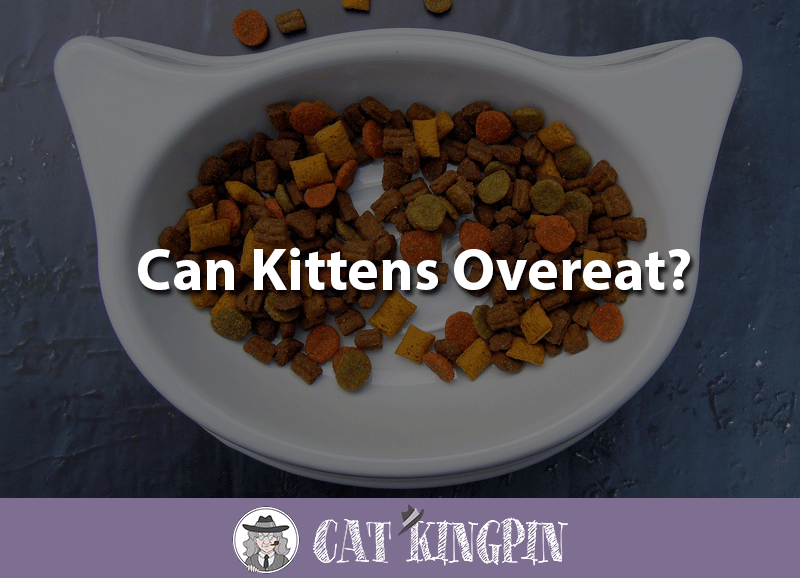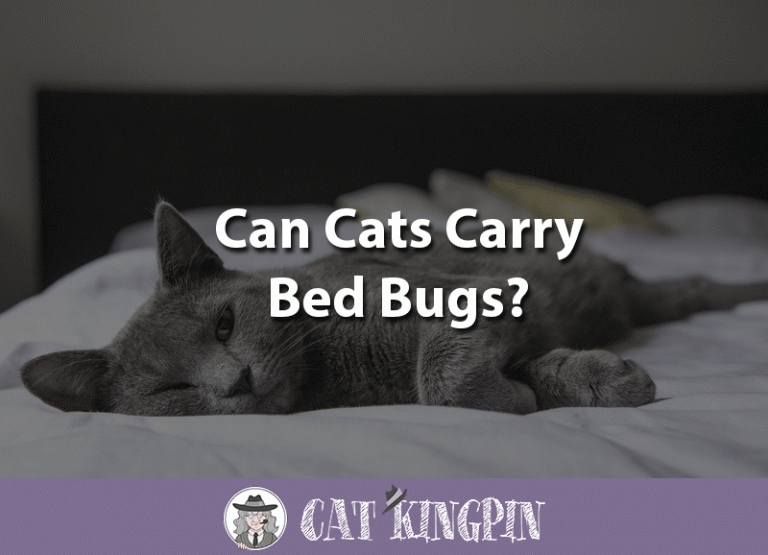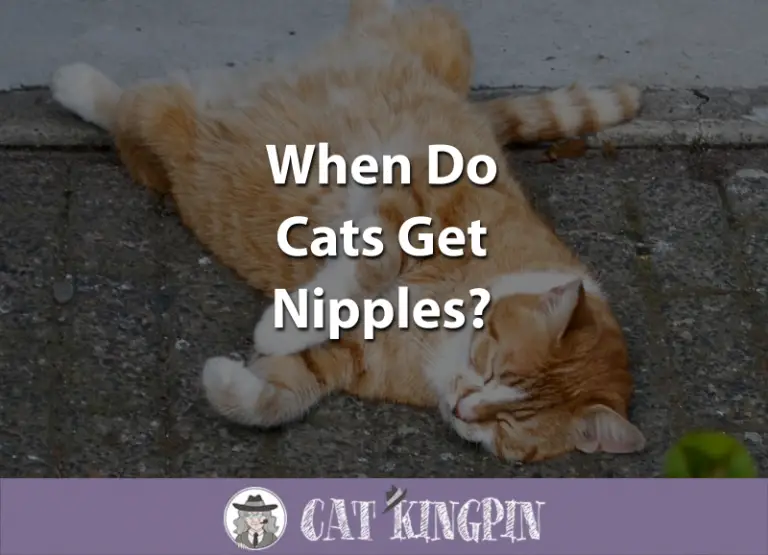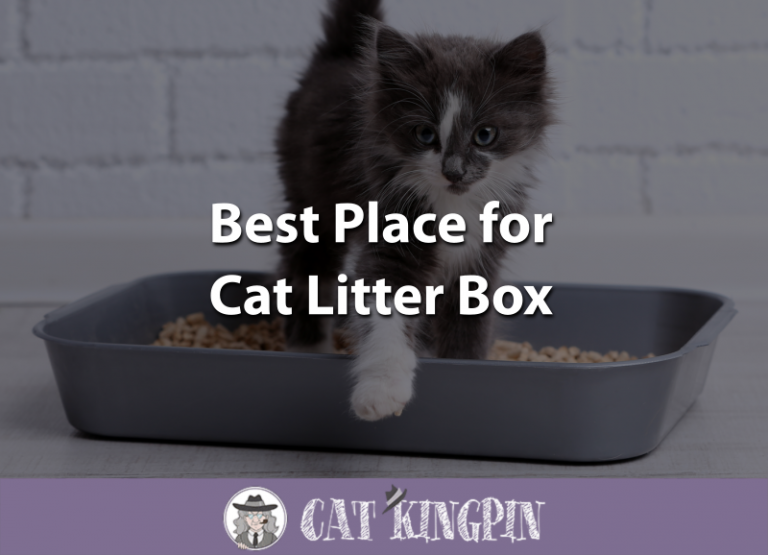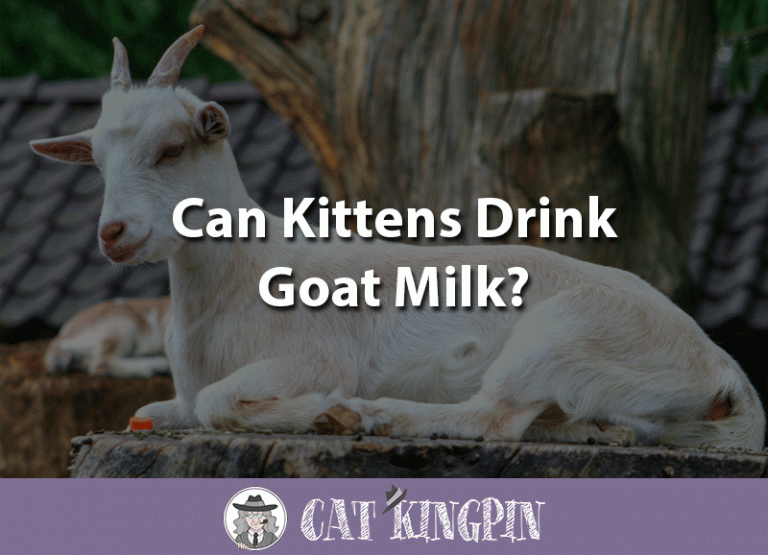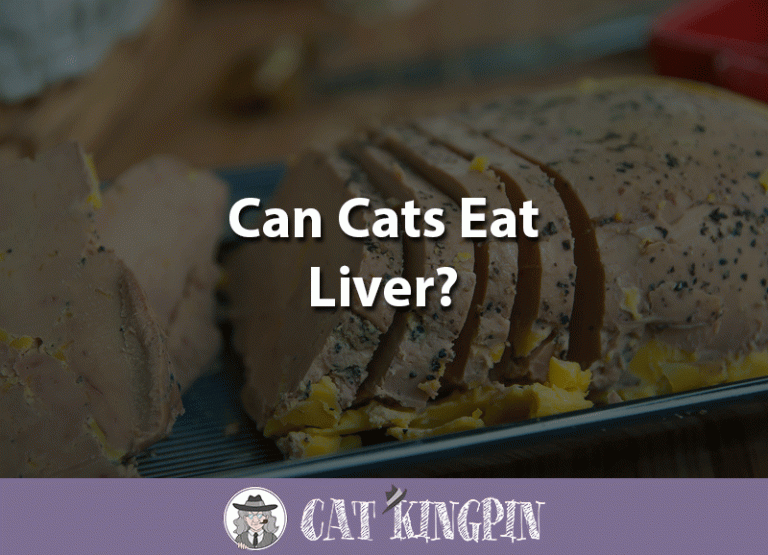Can Kittens Overeat?
Growing kittens need proper nutrition in order to thrive, and they are usually pretty voracious eaters! As cat lovers, we may feel tempted to give them as much as they want, because we figure if they’re eating they must be hungry. But is it possible to overfeed your kitten, or will they self-regulate and simply stop when they are full?
Adult cats can often free-feed, which means you can leave out food for them throughout the day and they will pick at it as they please. Unlike dogs, most cats seem to know when to stop eating and can be trusted to consume the calories they need.
Kittens, however, often lack that little voice inside their head that tells them to stop eating, and overeating for kittens can be dangerous.
Your veterinarian should be able to give you advice on what kind of food to give your kitten and how much to feed them. They can also answer questions you may have about if kittens can drink goat’s milk. But knowing how much food is too much for kittens, and the signs that they’ve overindulged, can be a lifesaver!
In this article, we’ll cover the following;
- Kitten Nutrition
- Can Kittens Overeat?
- Signs of Overeating in Kittens and How to Avoid it
Kitten Nutrition
Deciding what food to feed your kitten is one of the first and most important decisions you’ll make as a cat owner. There are a variety of different kibbles, wet foods, and supplements on the market, and it’s often difficult to decide. Kittens have different nutritional needs than adult cats, and your kitten’s age, activity level, and overall health are all factors in deciding which food to buy. Here are a few tips:
1. Get the kitten used to eating both wet and dry food. Cats can be picky eaters later in life, so it’s good to get them used to eating a variety of textures and foods. But once you choose a food, don’t deviate from it! Changing your kittens diet frequently can upset their digestive system and make them sick.
Keep in mind, too, that kittens can develop bad breath if they’re not getting enough hard food.
2. Choose a food that lists protein as the first three or four ingredients (meat, barley, etc.) Foods with fillers listed as the first ingredient, such as corn, should be avoided. Be careful with meat such as turkey or pork.
3. Choose a food your kitten likes! These kittens certainly like the food their owner picked!
Can Kittens Overeat?
The short answer is: absolutely! Kittens will likely eat whatever amount of food you give them, and so it’s up to you to make sure they aren’t eating too much. Overeating in kittens can lead to diarrhea, which sounds benign but is actually quite dangerous for them, especially for very young kittens.
In addition, kittens can vomit from overeating as well. This is also a serious issue and in either case, you need to keep an eye on the kitten to make sure they are okay.
Here’s a video of some kittens begging for food. They’re so cute as they cry for their dinner, so it’s easy to see why many kittens are overfed.
Signs of Overeating in Kittens And How To Avoid It
Because overeating in kittens can be dangerous, it’s important to recognize the signs. But how can you tell if your kitten has eaten too much?
Here are a few clues:
A Distended Belly: While kittens may have noticeably full bellies after each meal, their stomachs shouldn’t be too distended. If your kitten has a taut belly, or if their belly seems abnormally swollen, that could be a sign that they’ve eaten too much.
Diarrhea: This is the most alarming sign that a kitten has overeaten. If your kitten has diarrhea, there could be a variety of causes. But loose stools are a classic sign that your kitten has bitten off more than they can chew. Try offering them smaller meals and see if that helps. If the kitten has diarrhea for more than 24 hours or is refusing food and water, bring them to the vet immediately.
Vomiting: Kittens that have eaten too much may vomit soon after their meal. If this happens, don’t let the cat eat what they’ve thrown up. It sounds gross, but some animals seem to love to do this! Remove the kitten from the area, clean up the mess, and offer them a smaller amount of food an hour or so later. It’s not good for a kitten to completely miss a meal, but give their stomach a chance to settle down before offering them more food.
Now that you know the signs, how can you avoid overfeeding your kitten? Well, luckily you have control of what and how much your kitten eats.
1. Feed your kitten 3 or 4 small meals a day, rather than 1 or 2 large ones. Spacing out the food in this way can help prevent overeating.
2. Never leave food out for your kitten all day. While adult cats can self-regulate and will usually only eat when they’re hungry, kittens sometimes lack the ability to control themselves and may scarf up whatever you leave in their bowl.
3. Monitor them closely. If your kitten’s belly is taut or swollen, reevaluate how much you are feeding them. If your kitten has diarrhea or vomiting, take them to the vet and ask them how much your kitten should be eating.
Conclusion
Kittens are remarkable little pets, and you definitely want to do what’s best for them! Most kittens love to eat, though, and it’s your job to make sure they are eating enough food to help them grow, but not too much that it becomes unhealthy.
If you’re worried about your kitten overeating, just follow the steps above to keep them from overeating.
Have questions about how much to feed your kitten? Ask us in the comments!

